Ready or not, back-to-school is upon us! Are you prepared for the upcoming school year? We know it can be overwhelming, which is why we want to help you make the smoothest transition possible! We asked Jenny, who is a mother of 5, for her best advice on getting ready for back-to-school. She had so many incredible ideas, and we are so excited to share them with you. If you want to see how to make this school year a little less stressful, keep reading!
*click the links below to view products we recommend in our back-to-school tips and look out for special promo codes for our Blog Visitors!*
ORGANIZATION
The best way to reduce stress is to prevent it! Organization is one of the most important factors in keeping your life a little less chaotic. Here are a few ways to get more organized this school year.

Have a calendar.
This one may seem a little bit obvious, but sometimes it can be overlooked. Calendars are essential for keeping track of important dates and deadlines. We love this chalk calendar because you can edit and make changes however you see fit. It also includes a note section for any other significant information. Jenny loves using hers to write down memorizations for her kids. She also recommends putting your calendar in a spot where you’ll see it often, so it can serve as a constant reminder for upcoming dates.
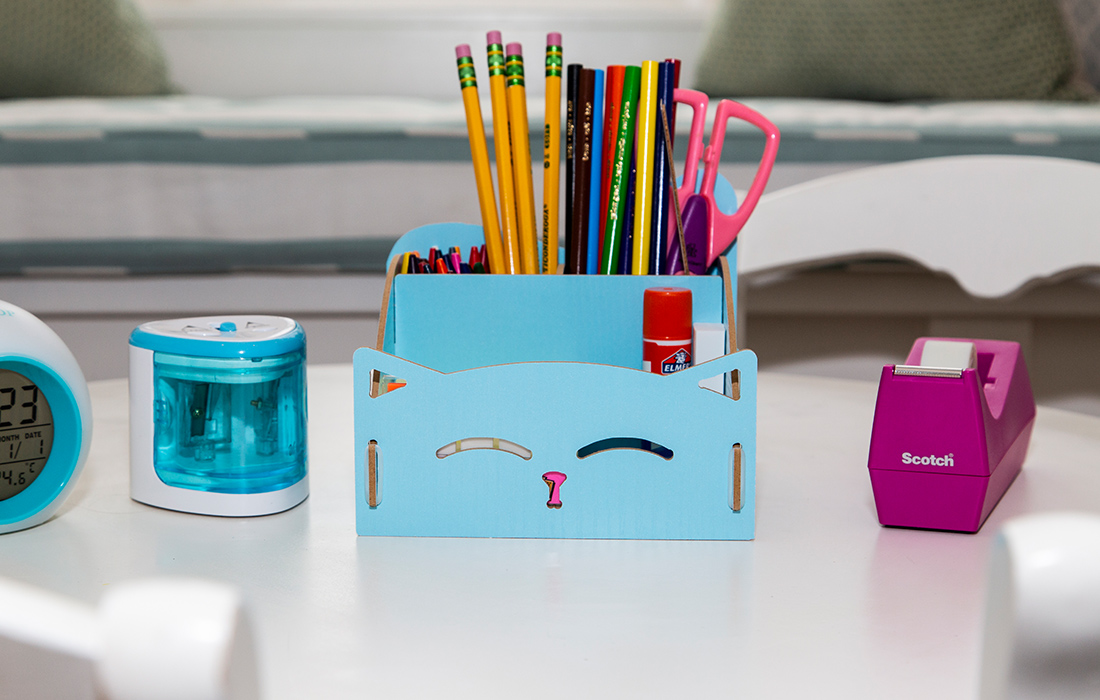
Make one centralized area in your home dedicated to homework.
The space you choose should allow your child to work without distraction. Here, you would set up a station with all of the supplies needed to do homework. This kitty organizer is a great way to keep those supplies neat and easily accessible. Ideally, families with more than one child would have a station for each child, so they don’t have to wait their turn. Jenny also suggests that you purchase everything you need before school starts to avoid making extra trips to the store.
Use promo code “MLBLOG15” when you click the link for a FREE Kitty Organizer!
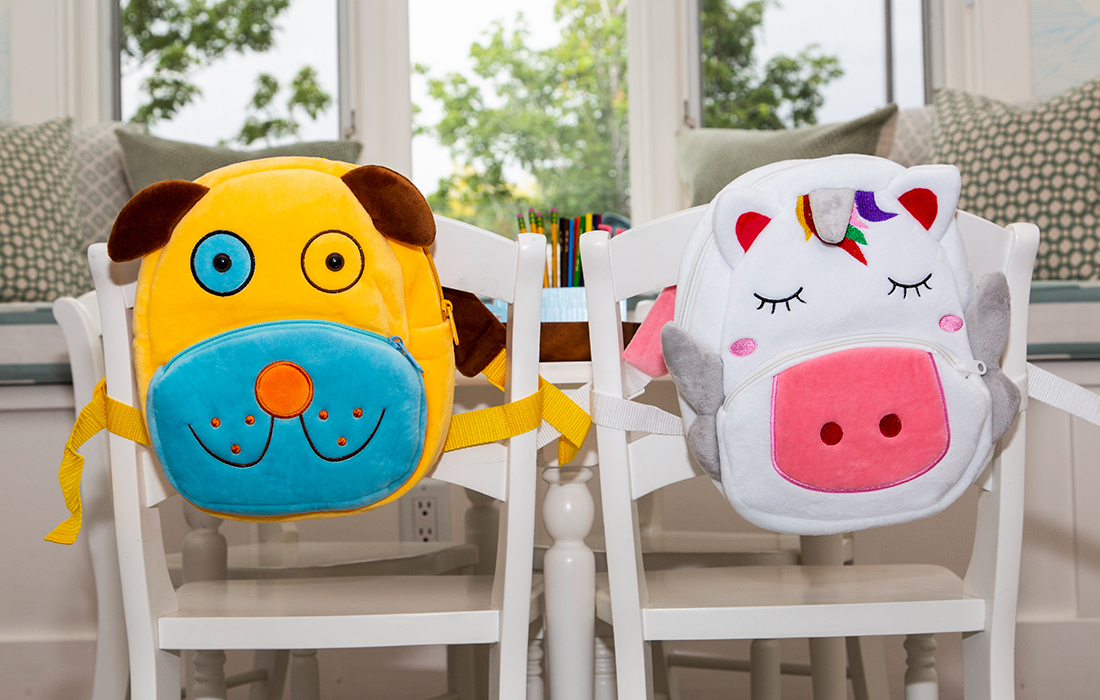
Keep homework assignments organized.
It’s important for your children to be organized, too! One of our favorite tips from Jenny is to take a folder with pockets and label one side “homework” and the other side “return.” Place unfinished work on the “homework” side, and completed work on the “return”. This helps both you and your child keep track of what work still needs to be done, and what needs to be turned in. Jenny also hangs clipboards in her home for each of her children where they keep important papers such as permission slips, assignments, and reminders. She’ll ask her kids to regularly check their clipboards for things that need to be done. Preschool and Kindergarten children need to be organized as well, so we recommend this adorable plush backpack that will make your kids excited to head back to school. It’s lightweight with one small and one large compartment, that is perfect for carrying snacks and supplies, as well as bringing home papers and crafts.
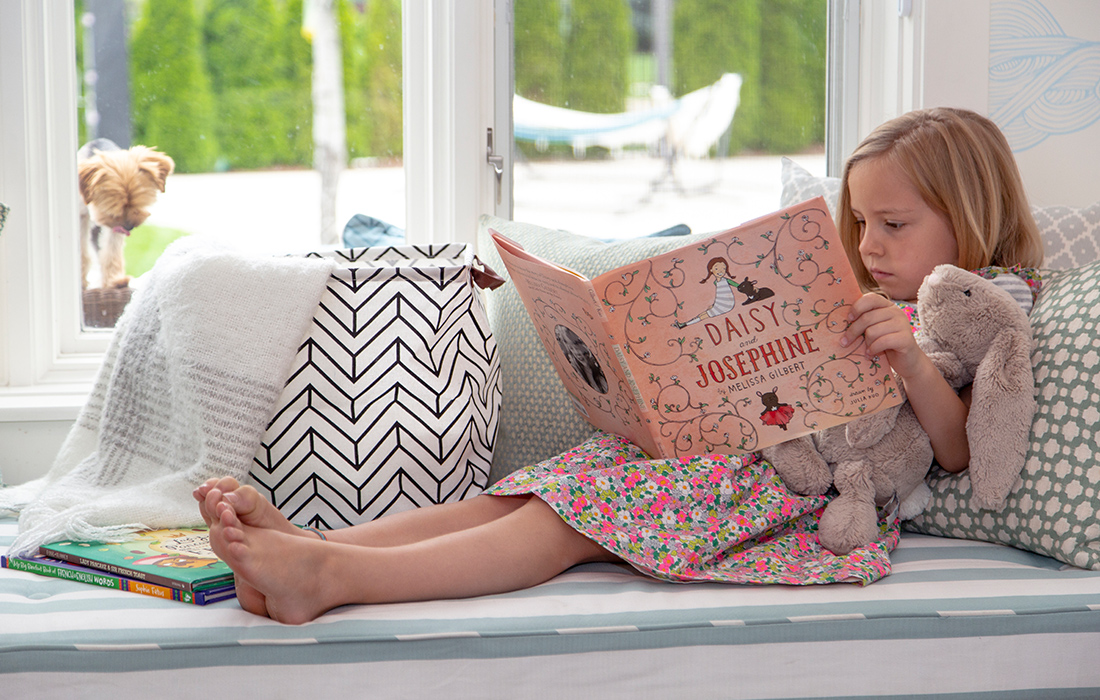
Have storage bins.
Storage bins are great for keeping things organized while making your home look stylish! You can use them for books, school supplies, or even toys. Everything in your home should have its own place, so you don’t feel bogged down with miscellaneous items scattered everywhere.
HOMEWORK
Sometimes, getting your child to do homework can be a chore. Here are a few things that will help encourage your kids to do their homework, and to do it more efficiently!
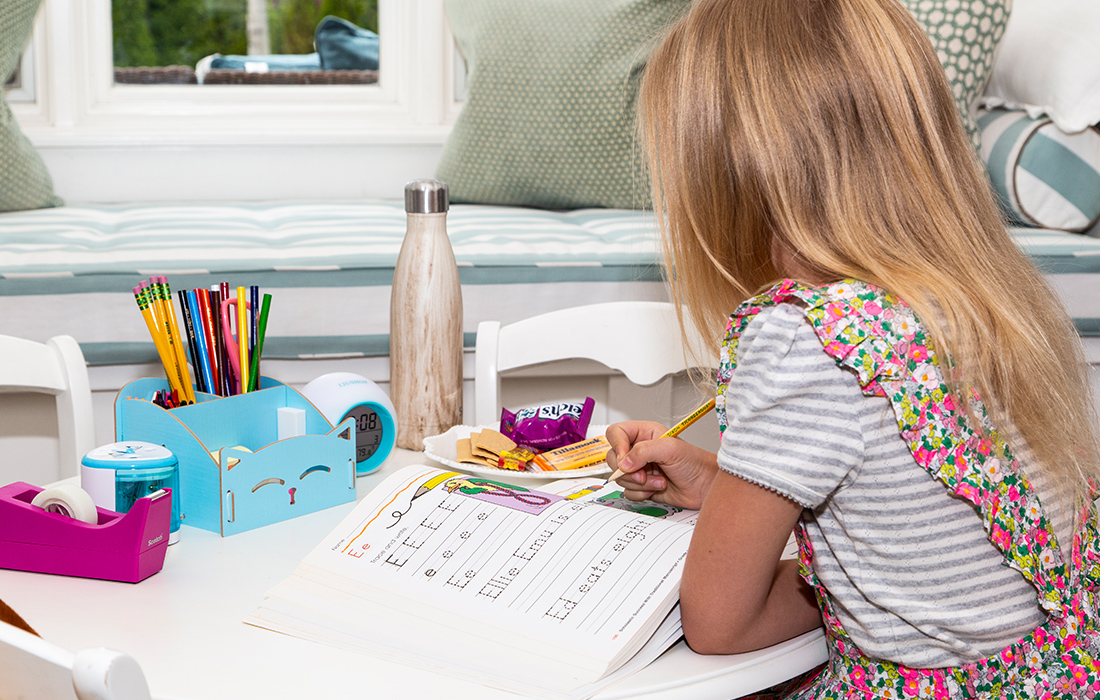
Talk to your child about their day.
One of the first things your child will probably want to do when they get home from school is telling you all about their day! Take some time to discuss their day before they start their homework. This will prevent distractions and help the two of you grow a deeper bond.
Give your child snacks while they do their homework.
Your child will most likely want to eat something as soon as they come home from school. Using a snack tray, you can have their favorite foods already prepared, rather than wasting time in the kitchen before homework. Then, they are free to eat and do homework at the same time! Jenny also recommends having a spot in your kitchen specifically for after-school snacks, so your kids know exactly where to look and aren’t eating things you don’t want them to.
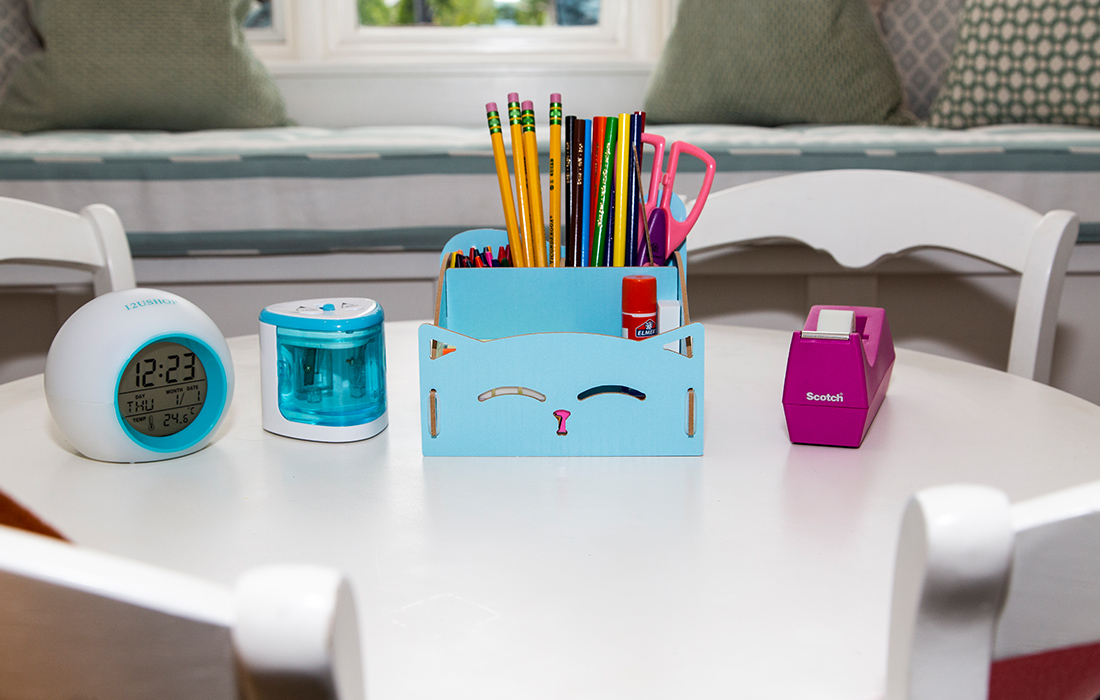
Use a clock to keep your child on task.
Having a clock nearby will let both you and your child know how long they’ve spent on their homework. By keeping track of the time, you can help your child recognize when they are spending too much time in one area compared to another, or when they are getting distracted. Jenny suggests getting a clock with a timer so you can give your child appropriate time limits on certain tasks as well.
Use promo code “MLBLOG25” when you click the link for a FREE Digital Alarm Clock!
Get an electric pencil sharpener.
A manual sharpener can waste a lot of time, especially when operated by a young child. An electric sharpener allows your child to quickly get back to their homework. You can also help your child out by sharpening pencils for them before they get home.
Check your child’s grades often.
If they aren’t willing to discuss it with you, ask their teacher how they’re doing. Many schools have a website you can use to check grades. Make sure to utilize that interface as well as any tools the teacher gives you. This will help you identify any trouble areas that you need to work through with your child.
READING
Reading may seem like a burden to your child, but it is so important for their development. Here are some tips on getting your child to read.

-
Make reading a habit. Incorporate reading into your child’s routine by selecting a certain time of day specifically for reading. This could be before naps, before bedtime, or after homework. Once it becomes a habit for them, they’re less likely to resist.
-
Let your child read what interests them. Any reading is better than no reading at all, so just try to get a book in front of them! They could read comic books, choose-your-own-ending stories, or even cookbooks while they help you in the kitchen. Jenny also has her kids listen to audiobooks that they can follow along with.
-
Go on dates to the bookstore or library. Jenny and her kids have a tradition of going on dates to the library or bookstore. It’s quickly become one of her children’s’ favorite activities! She lets them pick the books out, which actually makes them want to read. If you can spare some time or money, this is a great way to encourage your kids to read.
ACTIVITIES
When your kids finish their homework, they’ll probably want to pull out a phone, tablet, or computer. Instead, you should encourage them to do activities that exercise the brain.
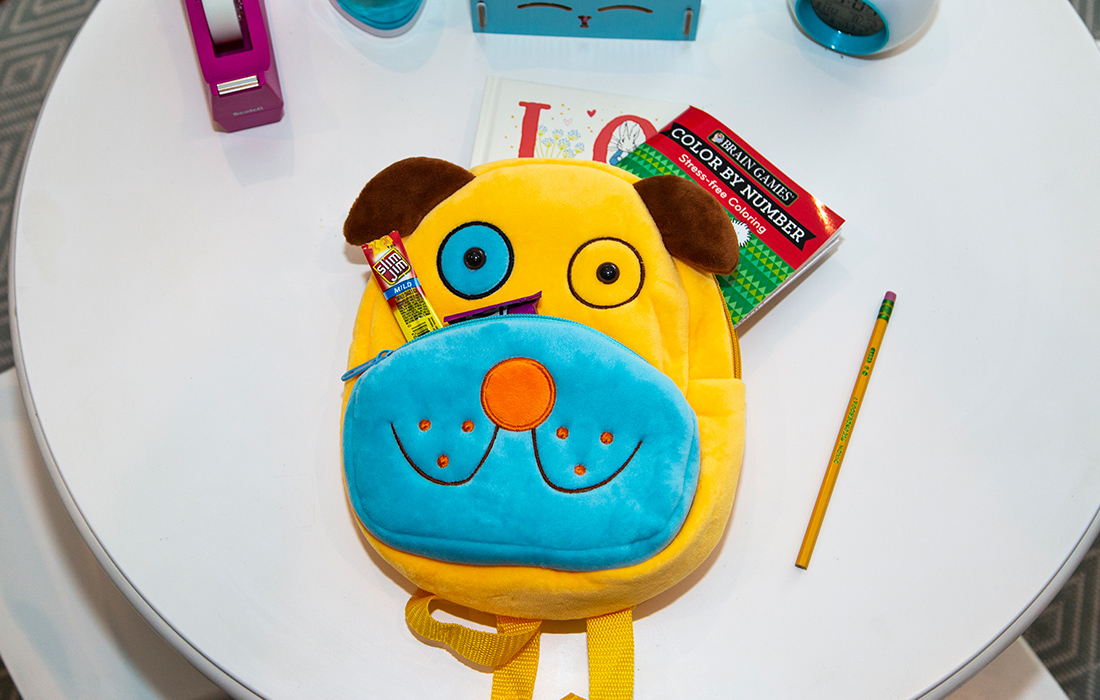
-
Get your child to put down the tablet. It’s important for your child’s development that they participate in activities to improve their mind and limit the time they spend staring at a screen. In a recent article, the American Academy of Pediatrics states:
-
“For children younger than 18 months, avoid use of screen media other than video-chatting. Parents of children 18 to 24 months of age who want to introduce digital media should choose high-quality programming, and watch it with their children to help them understand what they’re seeing.
-
“For children ages 2 to 5 years, limit screen use to 1 hour per day of high-quality programs. Parents should co-view media with children to help them understand what they are seeing and apply it to the world around them.
-
“For children ages 6 and older, place consistent limits on the time spent using media, and the types of media, and make sure media does not take the place of adequate sleep, physical activity and other behaviors essential to health.”
-
To view the entire article, click here.
-
Find alternatives to screen time. Some great activities to exercise the brain are word searches, card games, or sticker by number books. Paint by Sticker (found on Amazon) is a family favorite recommended by Jenny. Another great resource Jenny suggests is the CD/DVD set They Might Be Giants, Here Come the ABCs. It’s a great tool for teaching the ABCs, and her children love listening to it in the car or watching it at home.
-
Reward good behavior. Using a reward system is an effective way to reinforce good behavior. For instance, when your child chooses a favorable activity like reading instead of watching TV, reward them! This will encourage them to make good choices more often. Jenny’s reward system involves giving her children fake money that they can save up and redeem for prizes, such as going to the store and getting a treat. Find a reward system that works best for you and your child!
SUPPORT
Jenny’s last — and probably most important — tip is to make sure you are getting the help you need. Let’s be honest, parenting can be tough, especially when juggling school, activities, and conflicting schedules. Here’s the advice Jenny had to share:
-
There is no shame in asking for help from someone else. Take advantage of after-school tutoring programs or, if you can afford it, hire your own tutor for your children. Today’s curriculum is probably very different from what you were taught. For subjects such as math and science, a tutor can be extremely helpful in making sure your kids are doing well.
-
Don’t take on more than you can handle. Your children may have conflicting activities or lessons they participate in. If you can’t be everywhere at once, take advantage of carpooling or have someone you trust take your children to these activities.
- Do not feel less of yourself for needing help. As a parent, you may think that you have to do it all, but it’s okay to rely on family and friends. Creating a good support system is beneficial for both you and your child. No matter what, just remember that you are doing a great job.
We wish you and your children a wonderful and productive new school year!

